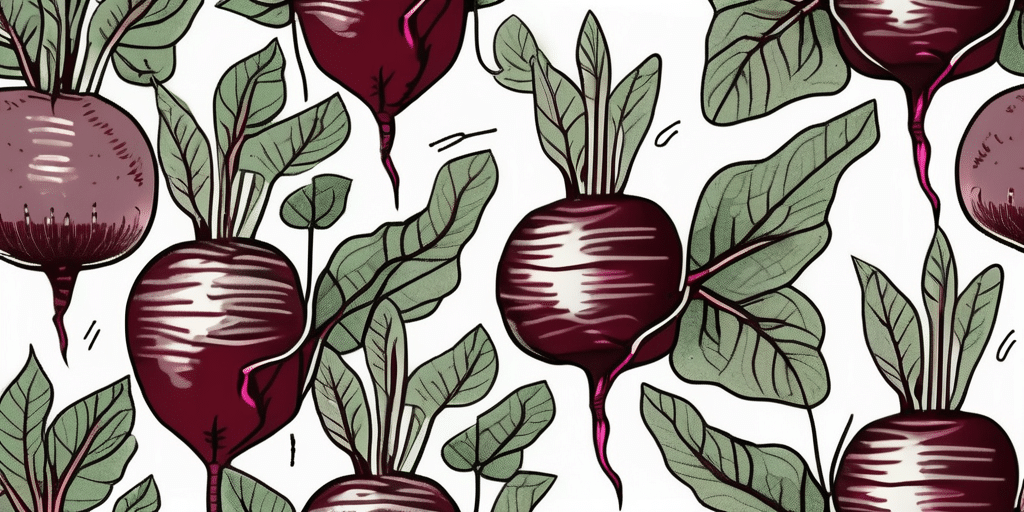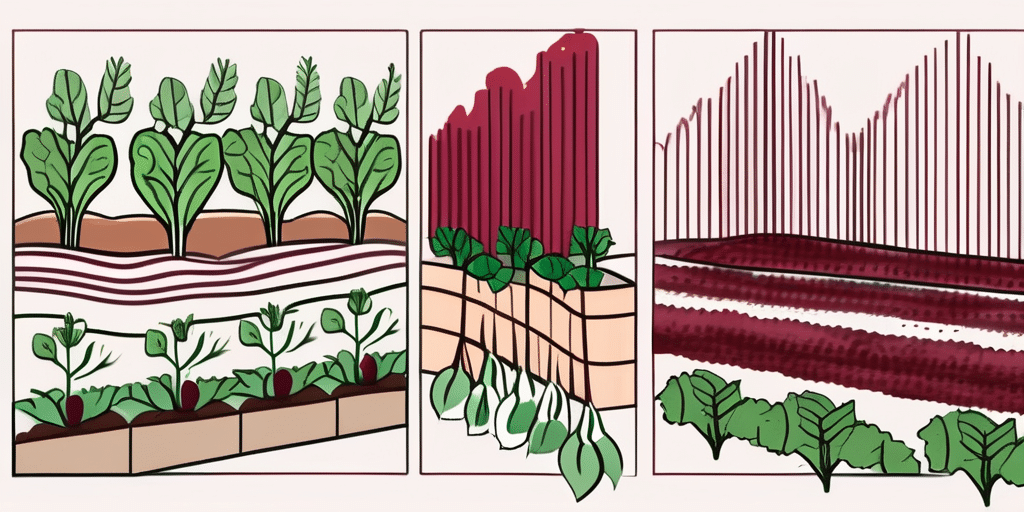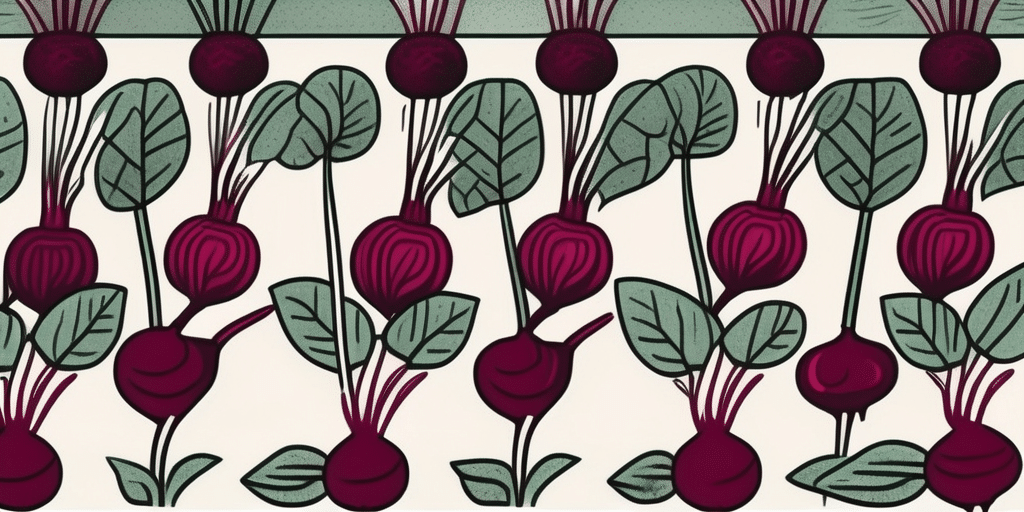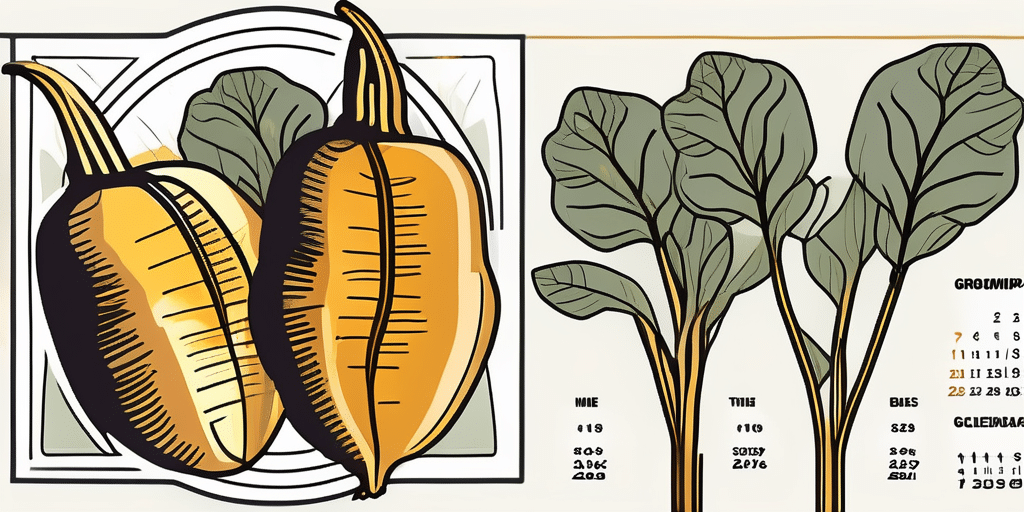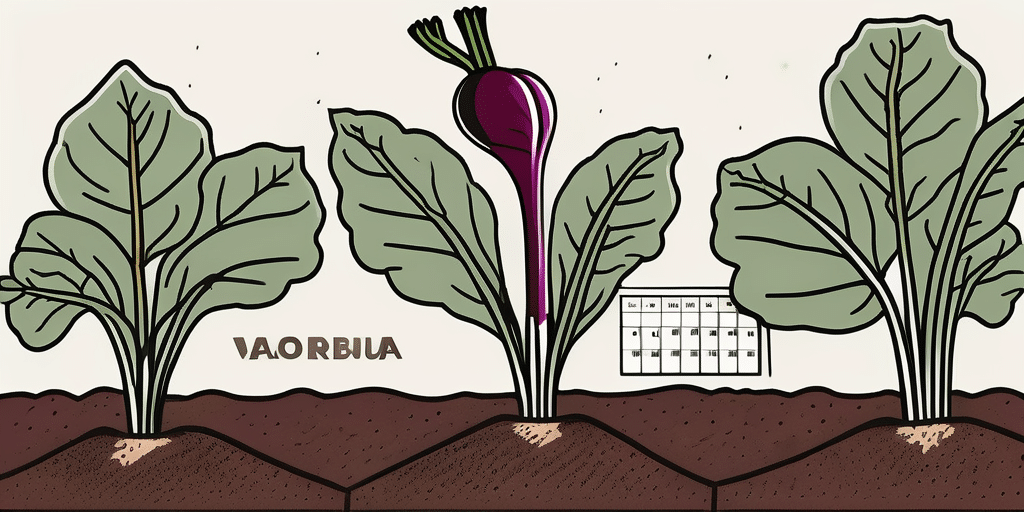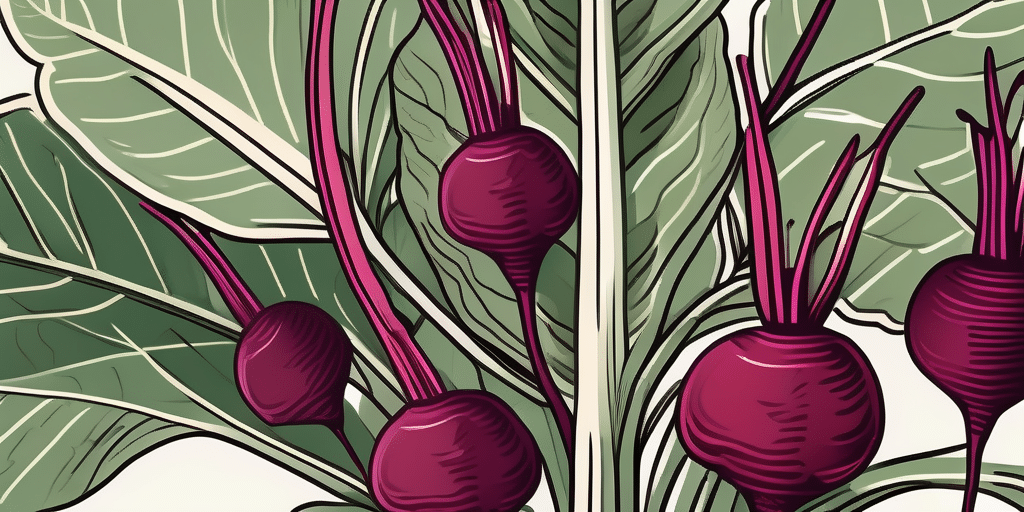Golden beets are a delicious and nutritious vegetable that can be grown in Georgia with great success. They are not as commonly grown as their red counterparts, but they are just as tasty and offer a unique flavor. In this article, we will explore when to plant golden beets in Georgia, how to grow them, and answer some frequently asked questions about this versatile root vegetable.
Climate & Hardiness Zones in Georgia
Before we dive into planting and growing golden beets in Georgia, it’s important to understand the climate and hardiness zones of the state. Georgia has a diverse climate, with regions ranging from the cooler mountainous areas in the north to the warm and humid climate in the south. The state experiences a variety of weather patterns, influenced by its proximity to the Atlantic Ocean and the Gulf of Mexico. The northern part of Georgia typically sees colder winters and milder summers, while the southern regions have hot summers and mild winters.
The United States Department of Agriculture (USDA) has divided Georgia into different hardiness zones based on average annual minimum temperatures. These zones help gardeners and farmers determine which plants are most likely to thrive in their specific region. Understanding your hardiness zone is crucial for successful gardening and farming practices, as it guides you in selecting the right plants that can withstand the temperature fluctuations in your area.
If you are unsure about your specific hardiness zone in Georgia, you can check the USDA’s Plant Hardiness Zone Map or consult with your local agricultural extension office for more information. These resources provide valuable insights into the climatic conditions of your area and offer recommendations on the best plant varieties suited for your zone. By taking the time to research and understand your hardiness zone, you can maximize the success of your gardening endeavors and ensure a bountiful harvest of golden beets and other crops.
When to Plant Golden Beets in Georgia
Timing is crucial when it comes to planting golden beets in Georgia. They prefer cooler temperatures and can tolerate light frosts, so it’s best to plant them in early spring or late summer to early fall. This allows them to mature before the intense heat of summer or the freezing winter temperatures arrive.
Here is a step-by-step guide on when to plant golden beets in Georgia:
- Choose a well-draining location in your garden that receives full sun or partial shade. Golden beets can tolerate some shade, but they prefer at least 6 hours of direct sunlight per day.
- Prepare the soil by removing any weeds, rocks, or debris. Loosen the soil to a depth of 8-10 inches and incorporate organic matter such as compost or well-rotted manure.
- Sow the golden beet seeds directly into the prepared soil. Plant the seeds 1 inch deep and about 2 inches apart, leaving 12-18 inches between rows.
- Water the newly planted seeds gently but thoroughly to ensure good soil contact and germination. Keep the soil evenly moist throughout the growing season, but avoid overwatering as it can cause root rot.
- As the seedlings emerge, thin them to about 4-6 inches apart to give each beet enough space to grow. Thinning also helps prevent overcrowding and allows for good airflow.
- Apply a layer of organic mulch around the beets to conserve moisture, suppress weed growth, and regulate soil temperature.
By following these steps and planting golden beets at the appropriate time, you can set your plants up for success and maximize your harvest.
Now, let’s delve a little deeper into the ideal conditions for growing golden beets in Georgia. The state’s climate offers a unique advantage for cultivating these vibrant root vegetables. Georgia experiences a mild winter and a long growing season, providing ample time for golden beets to thrive.
Golden beets are known for their sweet, earthy flavor and vibrant golden color. They are packed with essential nutrients, including fiber, folate, and potassium, making them a nutritious addition to any diet. By planting golden beets in your garden, you can enjoy the satisfaction of growing your own food while reaping the health benefits they offer.
When selecting a location for your golden beets, it’s important to consider their sunlight requirements. While they can tolerate some shade, providing them with at least 6 hours of direct sunlight per day will ensure optimal growth and yield. If your garden has limited sun exposure, consider planting them in an area that receives morning sun and afternoon shade.
In addition to sunlight, golden beets also thrive in well-draining soil. This means that the soil should not retain excess water, as it can lead to root rot and other diseases. To improve drainage, incorporate organic matter such as compost or well-rotted manure into the soil. This will not only enhance the soil structure but also provide essential nutrients for the growing beets.
As the golden beet seeds germinate and the seedlings emerge, it’s important to thin them to allow each beet enough space to grow. Crowded plants can compete for resources and hinder their overall development. By thinning the seedlings to 4-6 inches apart, you give them ample room to develop strong root systems and produce robust, healthy beets.
Remember to keep the soil evenly moist throughout the growing season. While golden beets require consistent moisture, overwatering can be detrimental to their growth. To maintain the ideal moisture level, water the plants deeply and thoroughly, ensuring that the water reaches the root zone. Applying a layer of organic mulch around the beets will help conserve moisture, suppress weed growth, and regulate soil temperature.
By following these additional details and tips, you can enhance your golden beet planting experience and increase your chances of a bountiful harvest. Enjoy the process of growing these vibrant root vegetables and savor the delicious flavors they bring to your table.
When to Harvest or Pick Golden Beets in Georgia
A common question among growers is when to harvest or pick golden beets in Georgia. Golden beets are typically ready for harvest about 55-70 days after planting, depending on the variety and growing conditions.
Here are some signs to look for when determining if your golden beets are ready to be picked:
- The beets should have reached a desirable size, typically around 2-3 inches in diameter. If left to grow too large, they may become tough and woody.
- The bulbs should be firm to the touch and have a smooth skin. Avoid beets that appear mushy or have blemishes.
- Gently pull one of the beets from the soil to check its color. Golden beets should have a vibrant golden hue, indicating they are fully matured.
When you are ready to harvest your golden beets, gently loosen the soil around each beet with a garden fork or trowel. Grasp the beet by the leaves, not the root, and give it a gentle tug to remove it from the ground. Trim off the leaves, leaving about an inch of the stem intact to prevent bleeding during cooking.
Once harvested, golden beets can be stored in a cool, dark place for several weeks. You can also enjoy them immediately by incorporating them into your favorite dishes or trying out new recipes.
Frequently Asked Questions
Here are some frequently asked questions about growing golden beets in Georgia:
- Can golden beets be grown in containers?
Yes, golden beets can be successfully grown in containers as long as the containers are at least 12 inches deep to accommodate the roots. Choose a container with good drainage and use a well-draining potting mix. - How often should golden beets be watered?
Golden beets should be watered consistently to keep the soil evenly moist. Water deeply whenever the top inch of soil feels dry, typically 1-2 times per week depending on weather conditions. - Are golden beets as nutritious as red beets?
Yes, golden beets have similar nutritional profiles as red beets. They are packed with beneficial nutrients such as fiber, folate, potassium, and antioxidants. - Can the beet greens be eaten?
Absolutely! Beet greens are not only edible but also highly nutritious. They can be cooked or enjoyed raw in salads, soups, or stir-fries. - Are golden beets resistant to pests and diseases?
While golden beets are generally resistant to common beet pests and diseases, it’s always a good idea to monitor your plants for any signs of trouble. Practice good garden hygiene, crop rotation, and consider using organic pest control methods if necessary.
Growing golden beets in Georgia can be a rewarding experience. With the right timing, proper care, and a little patience, you can enjoy a bountiful harvest of these golden gems. Whether you roast them, boil them, or incorporate them into your favorite recipes, golden beets are sure to add a vibrant and delicious touch to your culinary adventures. So why not give them a try in your Georgia garden?
Join How to Grow Everything for More Gardening Insights
Ready to turn your Georgia garden into the oasis of your dreams? Subscribe for free to How to Grow Everything and get personalized gardening advice tailored to your specific location and hardiness zone. Whether you’re a beginner or an experienced green thumb, our family is here to share the best gardening tips, special offers, and thousands of free growing articles—all delivered straight to your inbox with no spam, just pure gardening gold. Start building the garden of your dreams today!

